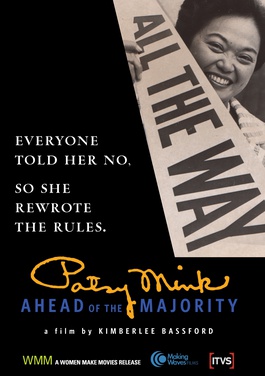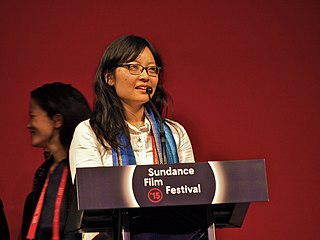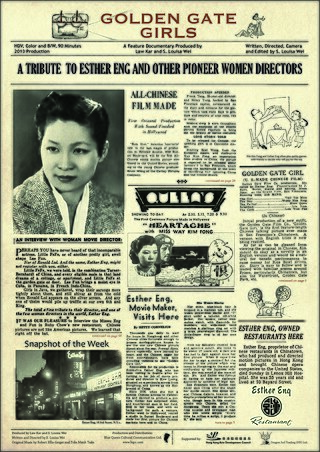The San Diego Asian Film Festival (SDAFF) is an annual event organized by Pacific Arts Movement that takes place every November in San Diego, California.
Oh, Saigon is a 2007 autobiographical documentary by Vietnamese American director Doan Hoang about her family's separation during the fall of Saigon and her attempt to reunite them afterwards. Oh, Saigon was executive produced by Academy Award and Emmy winner, John Battsek. Oh, Saigon received film grants from the Sundance Institute Documentary Fund, ITVS, and the Center for Asian American Media, and after its release, received a number of film festival awards and accolades.
Arthur Dong is an American filmmaker and author whose work centers on Asia America and anti-gay prejudice. He was raised in San Francisco, California, graduating from Galileo High School in June 1971. He received his BA in film from San Francisco State University and also holds a Directing Fellow Certificate from the American Film Institute Center for Advanced Film Studies. In 2007, SFSU named Dong its Alumnus of the year “for his continued success in the challenging arena of independent documentary filmmaking and his longstanding commitment to social justice."
Doan Hoang or Đoan Hoàng is a Vietnamese-American documentary film director, producer, editor, and writer. She directed and produced the 2007 documentary Oh, Saigon about her family, after leaving Vietnam on the last civilian helicopter as Saigon fell. The documentary won several awards at film festivals and was broadcast on PBS from 2008 to 2012. Hoang was selected to be a delegate to Spain for the American Documentary Showcase.

The Center for Asian American Media (CAAM) was founded in 1980. The San Francisco–based organization, formerly known as the National Asian American Telecommunications Association (NAATA), has grown into the largest organization dedicated to the advancement of Asian Americans in independent media, specifically the areas of television and filmmaking.

Shopping for Fangs is a 1997 American-Canadian black comedy film directed by Quentin Lee and Justin Lin, starring Radmar Agana Jao. The film marks the debut of actor John Cho.

The Asian American International Film Festival (AAIFF) is the first and longest-running film festival to showcase the works of emerging and experienced Asian and Asian American filmmakers and media artists in the US.
Evan Jackson Leong is a director and documentary filmmaker. Leong is likely most known for his documentary Linsanity about Jeremy Lin, which made its world premiere at the 2013 Sundance Film Festival. He has also directed the documentary 1040: Christianity in the New Asia (2010), and the documentary short BLT Genesis (2002), which tracks the behind-the-scenes making of and trajectory of Justin Lin's film, Better Luck Tomorrow.

Linsanity is a 2013 American documentary film about the rise of Asian-American basketball player Jeremy Lin. The film was directed by Evan Jackson Leong.

Patsy Mink: Ahead of the Majority is a 2008 documentary film that was written and directed by Kimberlee Bassford and is her first feature-length documentary film. The documentary premiered at the Hawaii International Film Festival on October 12, 2008, and was later broadcast on PBS in May 2009. It focuses on Patsy Mink (D-HI), who was the first woman of color and Asian American woman to serve in the U.S. Congress and the co-author of the Title IX gender equity legislation.

Jennifer Phang is an American filmmaker, most known for her feature films Advantageous (2015) and Half-Life (2008). Advantageous premiered at the 2015 Sundance Film Festival, winning a Special Jury Award for Collaborative Vision, and was based on her award-winning short film of the same name. Half-Life premiered at the 2008 Sundance Film Festival and won "Best Film" awards at a number of film festivals including the Gen Art Film Festival, the San Francisco International Asian American Film Festival as well an "Emerging Director Award" at the Asian American International Film Festival.

Golden Gate Girls is a 2013 documentary film focusing on the life and works of Esther Eng (1914-1970), once honored as the first woman director of Southern China. She crossed boundaries of both gender and culture by making Cantonese language films for Chinese audiences during and after WWII. She was in fact the only woman directing feature-length films in America after Dorothy Arzner’s retirement in 1943 and before Ida Lupino began directing in 1949. After her film career, she pioneered in establishing fine dining Chinese Restaurants in New York City. She left her mark in both the Chinese and English press enabling director S. Louisa Wei to recover some of her lost stories. Clips from her two extant films, stills from her eight other motion pictures, photos from her six albums, newsreels of San Francisco as she saw them, as well as hundreds of archival images are collected to present her life and work in the most stunning visuals.
Việt Lê is a Vietnamese-born American artist, writer, and curator. Lê is an associate professor at the California College of the Arts.
Finding Kukan is a 2016 feature-length documentary investigating the story of Chinese Hawaii-born producer Li Ling-Ai, the female co-producer of the film Kukan (1941).
Tyrus is a 2015 feature-length documentary directed by Pamela Tom about the renowned Chinese American artist Tyrus Wong, whose paintings became the inspiration for the classic animated feature Bambi.
Kimberlee Bassford is an independent documentary filmmaker from Honolulu, Hawai‘i. In 2005, she founded Making Waves Films LLC, which is a documentary production company. She advocates for gender equity and diversity in films and television. Most of her work focuses on Asian American women and young girls, and her films actively seek to correct underrepresentation of those groups in the media.
Deborah Lum is an American documentary filmmaker based in San Francisco. Her projects frequently explore subject matters within the Asian and Asian American community.

The San Francisco Independent Film Festival, known as IndieFest, is an annual film festival, held in January or February, that recognizes contemporary independent film. It is run by SF IndieFest, a nonprofit organization, and based at the Roxie Theater in the Mission District.
Isadora Quanehia Ding Welsh, known professionally as Loni Ding, was an documentary film maker, director, television series producer, activist, and university educator. She is known for her work exploring the experiences of Asian Americans. Notably, two of her films played a critical role in the passage of the Civil Liberties Act of 1988 which granted reparations to Japanese Americans who were incarcerated during World War II.
Will Zang is a Chinese filmmaker, well known for making short documentary films that exploring cultural and sexual minority contents. He first gained recognition for directing Real Kink (2016) and found further success with Dress Up Like Mrs. Doubtfire (2019) and The Leaf (2021).








